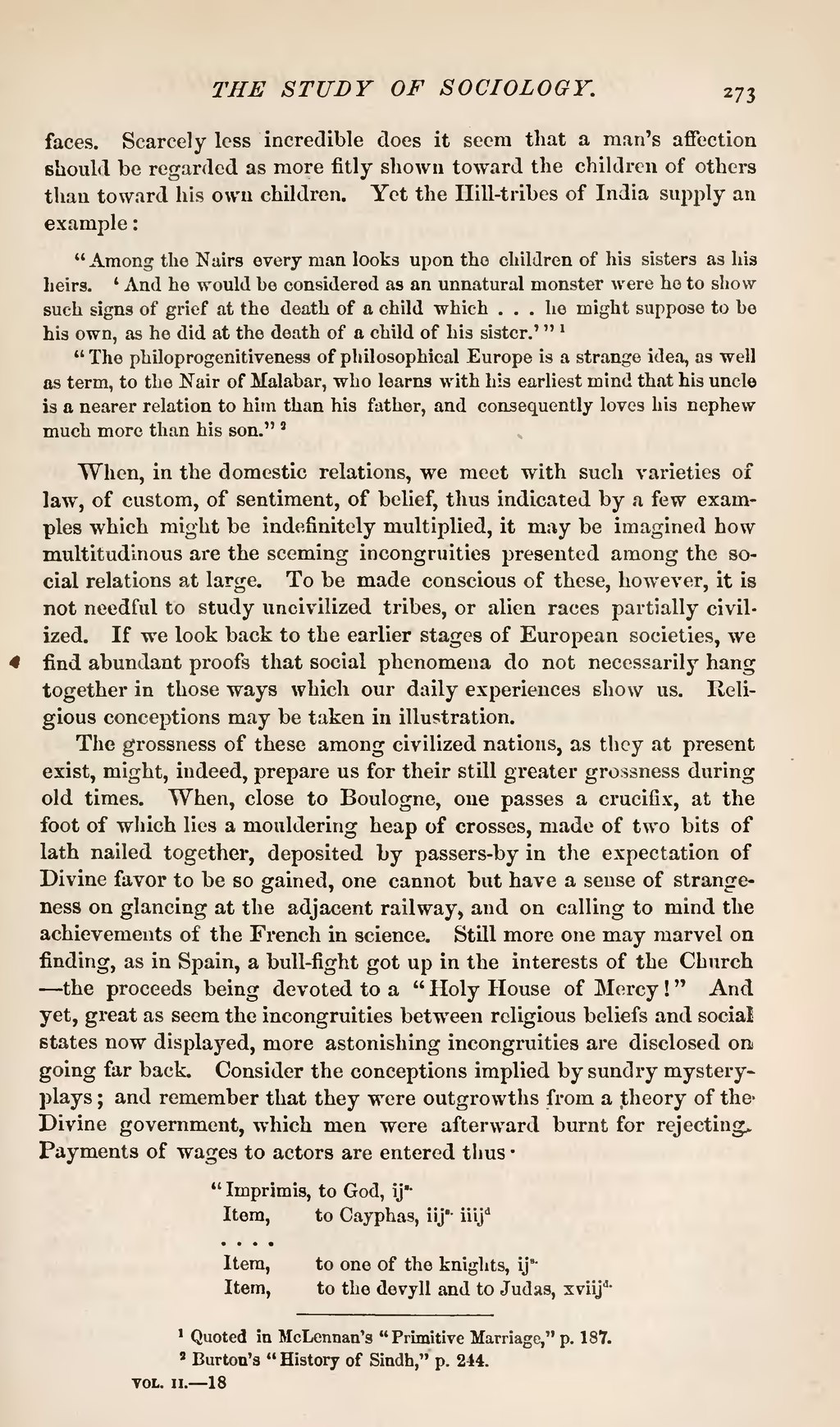faces. Scarcely less incredible does it seem that a man's affection should be regarded as more fitly shown toward the children of others than toward his own children. Yet the Hill-tribes of India supply an example:
"Among the Nairs every man looks upon the children of his sisters as his heirs. 'And he would he considered as an unnatural monster were he to show such signs of grief at the death of a child which ... he might suppose to he his own, as he did at the death of a child of his sister.'"[1]
"The philoprogenitiveness of philosophical Europe is a strange idea, as well as term, to the Nair of Malabar, who learns with his earliest mind that his uncle is a nearer relation to him than his father, and consequently loves his nephew much more than his son."[2]
When, in the domestic relations, we meet with such varieties of law, of custom, of sentiment, of belief, thus indicated by a few examples which might be indefinitely multiplied, it may be imagined how multitudinous are the seeming incongruities presented among the social relations at large. To be made conscious of these, however, it is not needful to study uncivilized tribes, or alien races partially civilized. If we look back to the earlier stages of European societies, we find abundant proofs that social phenomena do not necessarily hang together in those ways which our daily experiences show us. Religious conceptions may be taken in illustration.
The grossness of these among civilized nations, as they at present exist, might, indeed, prepare us for their still greater grossness during old times. When, close to Boulogne, one passes a crucifix, at the foot of which lies a mouldering heap of crosses, made of two bits of lath nailed together, deposited by passers-by in the expectation of Divine favor to be so gained, one cannot but have a sense of strangeness on glancing at the adjacent railway, and on calling to mind the achievements of the French in science. Still more one may marvel on finding, as in Spain, a bull-fight got up in the interests of the Church—the proceeds being devoted to a "Holy House of Mercy!" And yet, great as seem the incongruities between religious beliefs and social states now displayed, more astonishing incongruities are disclosed on going far back. Consider the conceptions implied by sundry mystery-plays; and remember that they were outgrowths from a theory of the Divine government, which men were afterward burnt for rejecting; Payments of wages to actors are entered thus
"Imprimis, to God, ija
Item,to Cayphas, iijc iiijd
. . . .
Item,to one of the knights, ijg
Item,to the devyll and to Judas, xviijd
